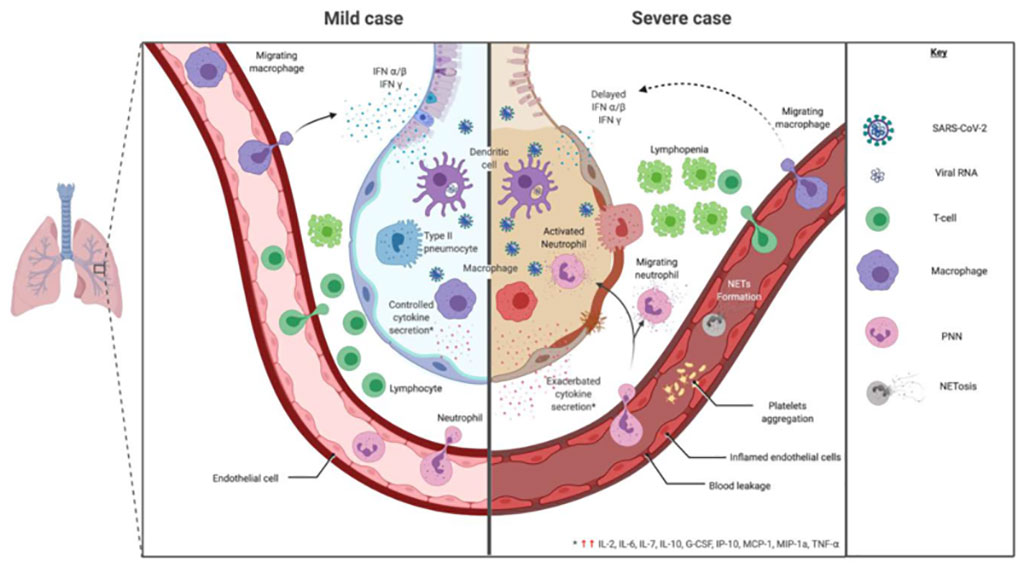Acute COVID-19 Infections Are Characterized by Elevated Blood Levels of IL-26
Posted on 22 Nov 2022
The most severe form of COVID-19 infection is characterized by elevated levels of the cytokine interleukin-26 (IL-26) in the blood.
IL-26 is an inflammatory mediator and a driver of chronic inflammation that may be categorized as a kinocidin due to its ability to act as a carrier of extracellular DNA and as an antimicrobial molecule through its capacity to form pores in bacterial membranes. IL-26 is released by several immune and structural cells following stimulation of toll-like receptors (TLRs), whereupon it can directly inhibit viral replication and enhance neutrophil chemotaxis. Given these unique properties, IL-26 has emerged as an intriguing mediator of host defense in the lungs. However, the role of IL-26 in COVID-19 has not been thoroughly investigated.

To correct this lapse, investigators at the Karolinska Institutet (Stockholm, Sweden) worked with 49 patients who had been hospitalized with SARS-CoV-2-infection, 44 of whom had severe symptoms and needed oxygen therapy. A control group of 27 healthy individuals was also recruited. The investigators measured levels of IL-26 protein and other inflammatory compounds blood samples obtained from the patients and control subjects.
Results revealed that IL-26 was markedly increased in blood samples from the acutely ill patients, and that the concentration of IL-26 correlated with those of the neutrophil-mobilizing cytokines IL-8 and TNFalpha, respectively. Moreover, the increase in blood IL-26 correlated with enhanced surface expression of CD47 on blood neutrophils isolated from patients with acute COVID-19. In addition, the results showed that the blood concentration of IL-26 correlated with that of increased lactate dehydrogenase, an established marker of tissue damage, and decreased mean corpuscular hemoglobin (MCH), a previously verified hematological aberration in COVID-19, both of which are associated with severe disease.
Taken together, the findings indicated that increased systemic IL-26 associated with markers of hyperinflammation and tissue damage in patients with acute COVID-19, suggesting that it may be a potential target for diagnosis, monitoring, and therapy in this disease.
“We already know that IL-26 is engaged in mobilizing immune cells that combat bacterial infections in the lungs and also in chronic respiratory disease in humans,” said senior author Dr. Anders Lindén, professor of environmental medicine at the Karolinska Institutet. “What is more, IL-26 has antiviral and antibacterial effects. Our discovery gives us a potential biomarker for severe COVID-19, but given the antiviral effects of IL-26, we may also have identified a new therapeutic target.”
The association between elevated IL-26 and acute COVID-19 was discussed in the November 17, 2022, online edition of the journal Frontiers in Immunology.
Related Links:
Karolinska Institutet














